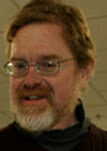The trio broke up in 1970 to pursue solo careers, but found little of the success they had experienced as a group, although Stookey's "The Wedding Song (There is Love)" (written for Yarrow's marriage to Marybeth McCarthy, the niece of senator Eugene McCarthy) was a hit and has become a wedding standard since its 1971 release.
In 1978, they reunited for a concert to protest nuclear energy, and have recorded albums together and toured since. They currently play around 45 shows a year.[1]
The group was inducted into the Vocal Group Hall of Fame in 1999.
In 2004, Travers was diagnosed with leukemia, leading to the cancellation of the remaining tour dates for that year. She received a bone marrow transplant and is recovering. She and the rest of the trio resumed their concert tour on December 9, 2005 with a holiday performance at Carnegie Hall.
Peter, Paul and Mary received the Sammy Cahn Lifetime Achievement Award from Songwriters Hall of Fame in 2006.
The trio sang in Mitchell, South Dakota, George and Eleanor McGovern Library and Center for Leadership dedication concert on October 5, 2006.
Recently the trio had to cancel several dates of their summer 2007 tour, as Mary took longer than expected to recover from back surgery. [2] They will make up at least one of the dates, at the Northfork Theatre (formerly Westbury Music Fair) in December 2007.

from http://www.classicbands.com/ppm.html
The trio of Peter, Paul & Mary were launched during an unusually creative period in popular music. Peter Yarrow, who had come to Greenwich Village with a psychology degree from Cornell, recalls that, "The Village in the early 1960s was a crucible of creativity. Involvement in music was a matter of joyous discovery, not a business. We knew that folk music was having an enormous impact in the Village, but was a couple of years away from being embraced on a national scale."
At the same time, the Village was a starting place for Noel Paul Stookey, a fledgling stand-up comic from Michigan State University. He met up with Peter and independently, Mary Travers, who was already known for her work in the "Song Swappers", a folk group that had recorded with Peter Seeger. Having grown up in the Village, the flaxen-haired singer was a familiar figure at the Washington Square Sunday singing event. The three decided to work together, encouraged by the folk impresario, Albert Grossman, who became their manager.
After rehearsing for seven months in Travers' three flight walk-up apartment, Peter, Paul & Mary premiered at the Bitter End in 1961, and then played at other seminal folk clubs like the Chicago "Gate of Horn" and San Francisco's "Hungry I". Following their appearance at the famed "Blue Angel" nightclub in New York, they embarked on a rigorous touring schedule that lasted nearly ten straight years.
1962 marked the trio's debut on Warner Brothers Records with "Peter, Paul and Mary" which brought folk music to the vast American public and to the top of the charts. As Billboard Magazine noted, "It became an instant classic. The album was in the Top 10 for ten months, remained in the Top 20 for two years, and did not drop off the Hot 100 album chart until three-and-a-half years after its release." The trio's version of "If I Had A Hammer" was not only a popular single from this LP, it was also embraced as an anthem of the civil rights movement.
This success marked the beginning of an incredibly influential time for Peter, Paul & Mary, and for the contemporary urban folk tradition which they personified. In the third week of November 1963, they had 3 albums on the Billboard Top 6. Also in '63, their recording of "Puff, The Magic Dragon" written by Peter Yarrow and Leonard Lipton won the hearts of millions, while their recording of "Blowin' In The Wind" helped introduce a fellow Village songwriter named Bob Dylan. It was folk music that was to spark the imagination and the passion of a generation intent on social change.
The song, "Puff, The Magic Dragon" was actually the center of controversy when it was first released. At the time, the drug culture was making headlines and some radio stations mis-took the lyrics and refused to play the song. Years later, Paul Stookie laughed as he explained that the song is the story of a little boy growing up and had nothing at all to do with marijuana.
But Peter, Paul & Mary did more in those times than chronicle events; they lived their songs. They stood with Dr. Martin Luther King, Jr. in Selma and in Washington. They were deeply involved in the anti-Vietnam War crusade, consistently performing at demonstrations, fund-raisers and "teach-ins." In 1969, Yarrow co-organized the March On Washington, and Peter, Paul & Mary sang before the half-million people who had come together for that landmark event.
By virtue of the trio's popularity, their recordings effectively introduced the work of important new writing talents to the American public. Their renditions of Gordon Lightfoot's "In The Early Morning Rain" and John Denver's "Leaving On A Jet Plane," engineered by the legendary Phil Ramone, helped launch an appreciation and awareness of these "new" artists. By 1970, Peter, Paul & Mary had earned eight gold and five platinum albums.



















